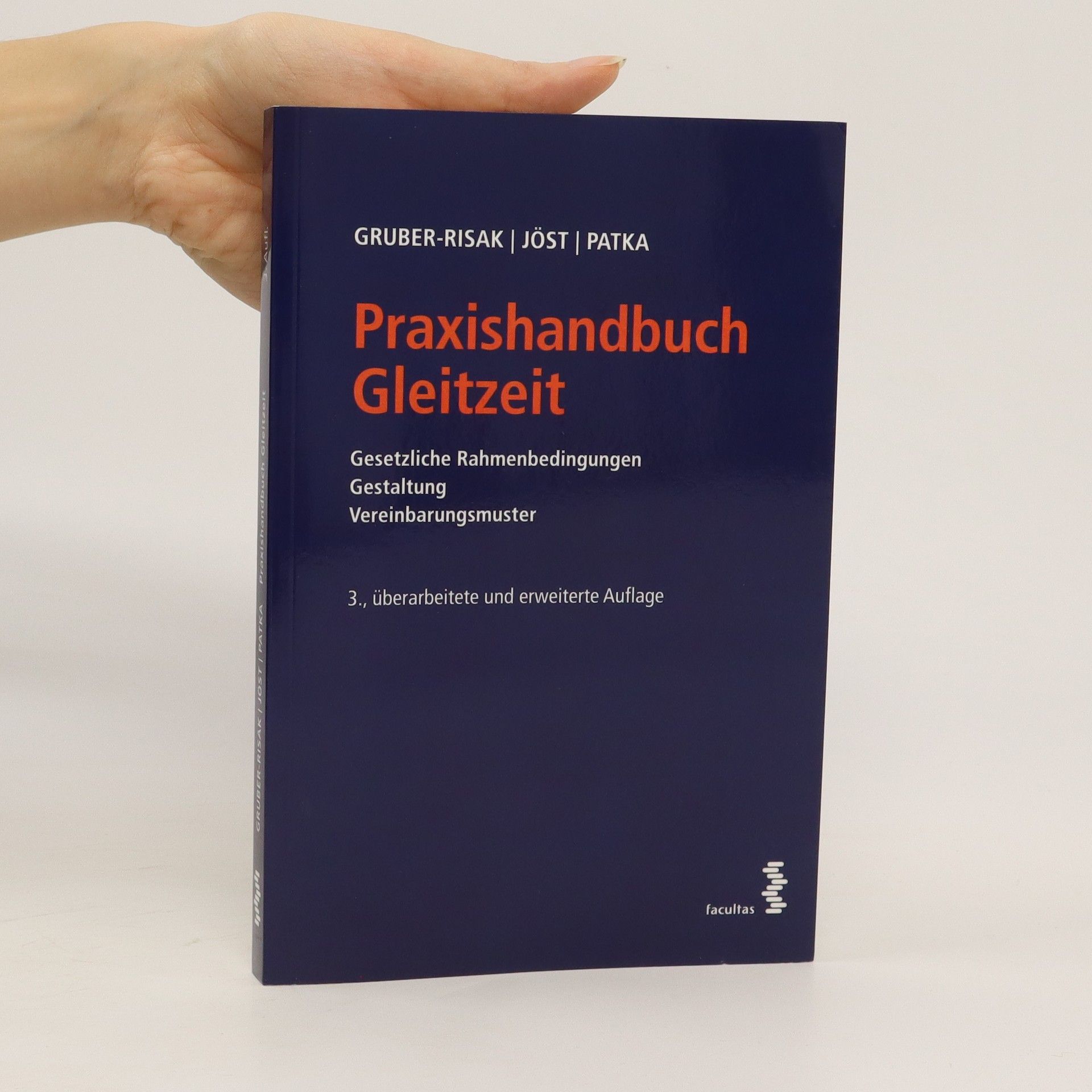Collaborative Ethnographic Filmmaking is at the heart of this book, highlighting its role in fostering teamwork throughout the filmmaking process. It covers every stage, from initial concepts and direction to shooting, editing, and distribution, emphasizing the importance of collaboration among filmmakers and subjects. This approach not only enriches the storytelling but also enhances the authenticity and depth of the film, making it a valuable resource for those interested in innovative filmmaking practices.
Martin Gruber Books






Wohnen im Eigentum
- 180 pages
- 7 hours of reading
Praxisgerecht und aktualisiert in 6. Auflage: Dieses Buch hilft, die geeignete Wohnung zu finden. Außerdem: Alles über Kauf, Finanzierung, Fallen in Verträgen und die Rechte als Wohnungsbesitzer – und wie man diese auch durchsetzen kann. Mit allen gesetzlichen Neuerungen der letzten Jahre.
Die Aufgaben eines Verwalters sind vielfältig, mitunter auch konfliktreich. Besonders dann, wenn es darum geht, unterschiedliche Interessen unter einen Hut zu bringen. Das Buch informiert über die grundlegenden rechtlichen Rahmenbedingungen des Verhältnisses zwischen Eigentümergemeinschaft und Hausverwaltung, insbesondere die Spielregeln für das Legen der Jahresabrechnung, das Abhalten von Hausversammlungen und die Mitwirkung an der Willensbildung der Wohnungseigentümer. Die wichtigsten Gerichtsentscheidungen geben Orientierung im Konfliktfall und zeigen, wie gesetzlich geregelte Rechte und Pflichten in der Praxis zu interpretieren sind.
Mietrecht in Österreich. Tipps zur Wohnungssuche. Makler, Provisionen und Verträge. Ihre Rechte als Mieter
- 200 pages
- 7 hours of reading
Das österreichische Mietrecht ist komplex, doch dieser neu überarbeitete Bestseller bietet Mietern Orientierung. Er behandelt Mietverhältnisse, Mietverträge, Betriebskosten und Rechtsdurchsetzung und berücksichtigt aktuelle Novellierungen. Zudem gibt es einen Serviceteil mit nützlichen Adressen.
Unser Buch hilft beim vermutlich größten finanziellen Abenteuer des Lebens: Viele Tipps zu Finanzierung und Kaufvertrag, wie man den Renovierungs- und Sanierungsbedarf eines älteren Hauses abschätzen kann sowie alles über Nebenkosten und Fördermaßnahmen.
Das Angebot an Fertighäusern ist enorm: Vom montierten Rohbau bis zum schlüsselfertigen Haus, vom Gartenhäuschen bis zur Designerbleibe ist alles drin. In unserem schon in 2. Auflage erscheinenden Buch erfahren Sie, welche Vor- und Nachteile Fertighäuser haben und worauf Sie bei Bauweise, Ausstattung und Verträgen achten müssen. Außerdem: Was tun, wenn es zu Problemen kommt.
Individualarbeitsrecht
- 102 pages
- 4 hours of reading
Dieses Skriptum bietet auf dem Stand Juli 2016 einen kompakten und praxisnahen Einblick in die Kernthemen des Individualarbeitsrechts vom Bewerbungsstadium bis zur Beendigung des Arbeitsverhältnisses. Es umfasst die Begründung des Arbeitsvertrages, die beiderseitigen sich daraus ergebenden Rechte und Pflichten (Entgelt und Arbeit, Treue- und Fürsorgepflicht) sowie die Entgeltansprüche trotz Unterbleibens der Arbeitsleistung sowie den Urlaub. Ebenso behandelt werden Haftungsfragen, das ArbeitnehmerInnenschutzrecht (insb das Arbeitszeitrecht), der Frauen- und Elternschutz sowie gesetzlich geregelte Karenzen bzw Teilzeitbeschäftigungen. Die Gleichbehandlung sowie die Beendigung des Arbeitsvertrages und die beendigungsabhängigen Ansprüche stellen ebenso wie der Betriebsübergang und die ArbeitgeberInnen-Insolvenz weitere Schwerpunkte des Skriptums dar. Der Fokus liegt dabei weniger in der Darstellung von Details, sondern in der Vermittlung von Grundbegriffen und Grundstrukturen. Das Skriptum eignet sich daher sowohl zum Erlernen dieser Grundlagen als auch zu deren Wiederholung kombiniert mit einem klassischen Lehrbuch. Die Darstellung wendet sich dabei nicht nur an Studierende der Rechts- und Wirtschaftswissenschaften, sondern auch an solche an Fachhochschulen und sonstigen Ausbildungseinrichtungen sowie an arbeitsrechtlich interessierte Nichtjuristen .
Praxishandbuch Gleitzeit
Gesetzliche Rahmenbedingungen Gestaltung Vereinbarungsmuster
- 220 pages
- 8 hours of reading
Die überarbeitete 3. Auflage des „Praxishandbuch Gleitzeit“ schließt eine wichtige Lücke in der arbeitsrechtlichen Literatur und bietet PraktikerInnen umfassende Antworten auf zentrale Fragen, indem sie sozialversicherungs- und steuerrechtliche Aspekte einbezieht. Einführend werden die arbeitszeitrechtlichen Grundlagen, flexible Arbeitszeitmodelle und die Grundlagen der Gleitzeit erläutert. Anschließend behandelt das Buch praxisrelevante Gestaltungs- und Abwicklungsfragen wie Zeitkonten, Überstunden und Abwesenheiten sowie die Kombination von Gleitzeit mit anderen Arbeitszeitmodellen. Zahlreiche Formulierungsvorschläge und Muster unterstützen die Anwendung in der Praxis, wobei ein besonderer Fokus auf den sozialversicherungs- und steuerrechtlichen Aspekten liegt. Diese Neuauflage berücksichtigt aktuelle Entwicklungen, insbesondere die Änderungen des Arbeitszeitpakets 2018. Neben der Ausweitung der Maximalarbeitszeitgrenzen wurden auch spezifische Neuerungen für die Gleitzeit eingeführt, wie eine gesetzliche Überstundendefinition und die Möglichkeit, die Normalarbeitszeit auf bis zu 12 Stunden täglich zu erweitern, sofern ganztägiger Zeitausgleich möglich ist. Dies hat in Betrieben mit bestehenden Gleitzeitvereinbarungen zu Diskussionen über Anpassungsbedarf geführt.
Mietrecht in Österreich
- 184 pages
- 7 hours of reading
Das österreichische Mietrecht ist selbst für Experten kaum noch überblickbar. Damit Sie als Mieter dieser komplizierten Materie nicht rat- und hilflos gegenüberstehen, wurde unser bewährter Bestseller völlig neu überarbeitet, aktualisiert und auch erweitert. Er hilft Ihnen, Wege durch das Labyrinth der verschiedenen Mietverhältnisse und unterschiedlichen Mietzinse zu finden. Außerdem finden Sie alles zum Thema Wohnungssuche, Mietverträge, Befristungen, Betriebskosten und auch Rechtsdurchsetzung, falls Sie vor Gericht müssen. Damit Sie auf dem neuesten Stand sind, sind sämtliche Novellierungen des Mietrechtsgesetzes berücksichtigt. Auf die Besonderheiten bei vermieteten Einfamilienhäusern wird in den einzelnen Kapiteln jeweils hingewiesen. Zusätzlich gibt es am Ende des Buches einen Serviceteil mit umfangreichem Adressmaterial.


